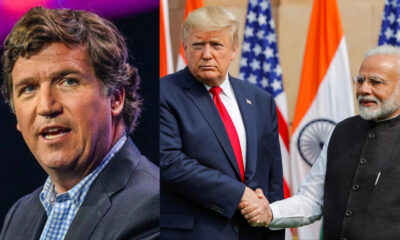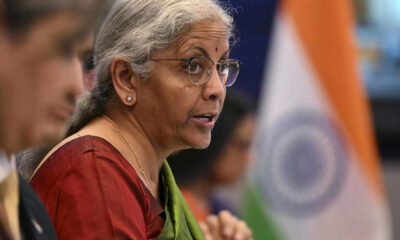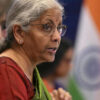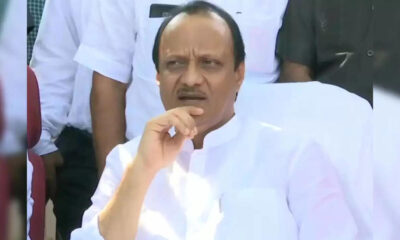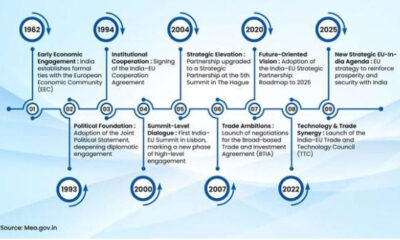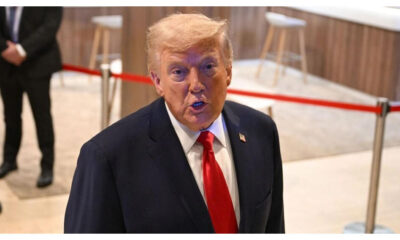From the Caribbean to Bihar: PM Modi’s Subtle Political Messaging in Trinidad and Tobago
When Prime Minister Narendra Modi landed in the Caribbean nation of Trinidad and Tobago, over 15,000 kilometers away from India, he was welcomed with more than just diplomatic courtesies. The atmosphere in Port of Spain echoed the rhythms of Bihar — with Bhojpuri chautaal, dhol beats, and a warm welcome by 38 ministers dressed in Indian attire. The stage, both culturally and politically, was set with precision — and timing, as Bihar heads into elections in just a few months.
The Prime Minister’s visit to Trinidad and Tobago was diplomatically significant, but the optics suggested a deeper, more strategic intent — one directed at the millions of Biharis, both at home and abroad. In a country of just 13 lakh people — smaller than even Goa — nearly half the population traces its roots to India, specifically to Bhojpuri-speaking regions of Bihar and Uttar Pradesh. The resonance with Bihar’s culture, values, and history was unmistakable — and deliberate.
From traditional music to the display of Bhojpuri cultural identity, every element of the visit was a well-scripted message. And while the Prime Minister’s journey through Patna Street — a real street in Trinidad’s capital — wasn’t confirmed, he made sure to highlight it in his speech.
“Banaras, Patna, Kolkata, and Delhi may be cities in India, but there are also names of streets here,” he said, drawing a direct connection between the Caribbean islands and Indian soil.
But perhaps the strongest symbolism of the visit was PM Modi’s reference to Trinidad and Tobago’s former Prime Minister Kamla Persad-Bissessar as “Bihar ki Beti”. Kamla, whose ancestors migrated from Buxar district in Bihar in 1889, was a prominent presence at the event. Modi not only recognized her lineage but also used her journey to subtly connect with women voters in Bihar.
“The ancestors of PM Kamla were from Bihar’s Buxar. She has also visited the place. People consider her the daughter of Bihar,” Modi said.
This declaration wasn’t just a cultural nod — it was a political cue. In a state like Bihar, where caste, identity, and emotional connect play vital roles in electoral politics, the Prime Minister’s words were aimed at invoking a sense of pride among voters — especially women — back home. Highlighting the success of a woman of Bihari descent who became a head of state reinforced the message that Bihar’s roots have global impact.
The Prime Minister also hailed Bihar’s historic contribution to democracy and diplomacy, calling it a “source of pride for the world.” He added that Bihar would be a cradle of new opportunities in the 21st century, framing it as a future-forward state deeply connected to India’s growth trajectory.
Another subtle — yet powerful — line of messaging came in the form of Modi’s praise for Indian-origin citizens in Trinidad and Tobago. Calling them “messengers of a timeless civilisation,” he said:
“They left their soil but not their soul.”
This statement carried dual significance. It was a heartfelt tribute to the diaspora, but also a tribute to Bihari migrants, who form a large chunk of India’s internal and external migrant population. In a state where lakhs of people travel out for work every year, Modi’s message reinforced a positive identity: migration not as a compulsion, but as a mark of cultural endurance and global ambition.
Adding to the cultural symbolism, Modi also shared images of a dinner event where food was served on Sohari leaves — an indigenous touchpoint that originates in the Bhojpuri language and culture. In Bihar, these leaves, derived from the sal or similar trees, are traditionally used in religious and festive gatherings.
The word Sohari roughly translates to “food for the gods,” a detail that wasn’t missed by Modi’s audience — especially those from rural or traditional households in Bihar.
Capping off the event, the Prime Minister offered a tangible gift to the diaspora — the eligibility for sixth-generation descendants of Indian-origin citizens to obtain Overseas Citizenship of India (OCI) cards. This move, practical and symbolic, strengthens India’s bond with its global diaspora and is likely to resonate with those who still see Bihar as their ancestral home, even if generations removed.
As Bihar prepares for a crucial election, every gesture, word, and symbol matters. The Caribbean visit may appear far removed from the Indian political theater, but in reality, it was a carefully crafted message — speaking directly to identity, heritage, and pride.
Whether this cultural diplomacy will convert into electoral dividends remains to be seen. But one thing is clear: Modi’s message from Trinidad and Tobago was not just for the global stage — it was also meant for the voters of Bihar.













